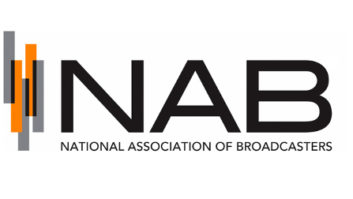Despite their accomplishments of the past year, broadcasters must do more to evolve with changing media consumption habits and to invest in technologies that allow for long-term growth.
Take for example digital FM radio, said NAB President and CEO Gordon Smith during his State of the Industry address on day one of the 2018 NAB Show.

This may be the spring show where industry discussion of an all-digital future starts to get more serious. Smith noted that through the NAB’s Pilot technology initiative, the association is supporting experiments with all-digital FM to deliver more digital audio channels and data capacity to support autonomous vehicle and connected car infrastructures, providing broadcasters with new uses of their valuable spectrum, Smith said. Here at the show, the NAB is hosting an all-digital FM radio demonstration at the Pilot’s Futures Park, located in the North Hall. The NAB also is continuing to work with radio groups to improve the appearance and positioning of radio on the car dashboard, and working with the auto industry to identify areas of collaboration to enhance the relevance of radio in automobiles, he said.
Advanced emergency alerting has taken on greater urgency as more industry leaders become advocates of the importance of adoption of FM chips in smartphones — including, Smith said, an about-face by Consumer Technology Association CEO Gary Shapiro.
[Read the transcript of Smith’s speech.]
Smith also touted work that the NAB has done to educate policymakers on stations’ vital role in the community. He cited the defeat of a $169 billion tax on advertising, the FCC’s modernization of media ownership rules and NAB’s work securing of $1 billion in federal reimbursement funds for radio and television stations affected by the spectrum repacking process.
“When this industry speaks with one voice, these wins demonstrate that it is a powerful voice,” Smith said.
Local stations have the power to reach and impact people like no other medium, Smith said. Without local broadcasting, he asked, who would tell people where to seek shelter in the case of an emergency, and who would investigate stories about government corruption? “It’s a reminder of broadcasting’s highest purpose,” he said. “Protecting this mission is our moral compass. It’s what drives us every day.”
Smith said the industry has found a keen supporter on Capitol Hill in Rep. Greg Walden (R-Ore.), a former radio station owner in Oregon who told the crowd that working in broadcast was “a great training ground for me in public service.”
“What you learn in that business is that it’s all about serving the public,” he said.
Smith and Walden also talked about the well-publicized hearing set for April 11 in which Facebook CEO Mark Zuckerberg will talk about privacy and safety. As Smith pointed out in Monday’s session, there is no regulation for social media sites, “and yet they compete with [broadcasters] for eyes and ears and ad dollars. We’re in the same business as them, but we’re highly regulated. Do we need less regulation or more for them?”











